In a world where businesses are racing to the cloud faster than a cat chasing a laser pointer, Microsoft Azure stands out as the ultimate playground. This powerful cloud computing platform isn’t just for tech wizards; it’s designed for everyone who wants to scale their operations without breaking a sweat—or the bank. With its endless services and features, Azure makes it easy to transform ideas into reality, leaving competitors scratching their heads.
Imagine deploying applications in seconds, accessing data from anywhere, and enjoying the flexibility to grow as needed. Azure’s got your back, whether you’re a startup or a Fortune 500 giant. So buckle up and get ready to explore how this cloud giant can elevate your business to new heights without the need for a superhero cape.
Table of Contents
ToggleOverview of Microsoft Azure
Microsoft Azure stands as a prominent cloud computing platform, delivering a wide array of services tailored to businesses of various sizes. Users benefit from its extensive capabilities, which include virtual machines, databases, and integration services. Flexibility characterizes Azure, enabling teams to deploy applications and scale resources to meet demand seamlessly.
Security remains a top priority for Azure, incorporating advanced measures to protect data and applications. Organizations can leverage comprehensive compliance certifications to ensure regulatory requirements are met while using the platform. Hybrid cloud solutions further enhance Azure’s appeal, allowing businesses to combine on-premises infrastructure with cloud resources efficiently.
Developers find Azure an excellent environment for innovation, offering tools and frameworks that support rapid application development. Integration with existing Microsoft products fosters a smooth transition for businesses already using services like Office 365 and Dynamics 365. Collaboration becomes easier, as teams can share resources and insights across projects.
Cost management tools within Azure allow organizations to monitor spending and optimize resource allocation. Businesses can take advantage of pay-as-you-go pricing models, ensuring they only pay for what they use. In turn, this model helps control operational expenses and facilitates budget planning.
Innovative services, such as machine learning and cognitive services, empower companies to advance their data analytics capabilities. Data-driven decision-making becomes achievable with these solutions, helping organizations extract valuable insights from vast amounts of data. Microsoft Azure promotes both growth and innovation, positioning itself as a strategic partner for today’s dynamic business landscape.
Key Features of Microsoft Azure

Microsoft Azure provides powerful capabilities tailored for businesses seeking cloud solutions. Users benefit from its diverse features, facilitating seamless digital transformation.
Cloud Computing Models
Azure supports three primary cloud computing models: Infrastructure as a Service (IaaS), Platform as a Service (PaaS), and Software as a Service (SaaS). IaaS offers virtualized computing resources, allowing businesses to control their infrastructure while minimizing hardware costs. PaaS enables developers to build applications without worrying about underlying infrastructure, streamlining the development process. SaaS delivers software applications over the internet, ensuring easy access and scalability for users. These models provide flexibility, catering to varying business needs.
Deployment Options
Microsoft Azure offers multiple deployment options, including public, private, and hybrid cloud environments. The public cloud facilitates easy access to resources hosted by Microsoft, enabling rapid scaling. Private cloud solutions focus on dedicated resources, enhancing security and control for sensitive data. Hybrid cloud deployments combine elements of both, leveraging on-premises infrastructure alongside Azure’s cloud resources. This flexibility empowers organizations to optimize their workloads and tailor solutions to specific operational requirements.
Microsoft Azure Services
Microsoft Azure offers a comprehensive suite of services designed to meet diverse business needs, enabling organizations to innovate and operate efficiently.
Compute Services
Compute services in Azure include Virtual Machines (VMs), Azure Functions, and Azure Kubernetes Service. VMs provide on-demand computing resources, offering flexibility for applications requiring varying workloads. Azure Functions allow developers to run code without managing infrastructure, optimizing development time. Kubernetes Service simplifies container orchestration, enhancing deployment speed for microservices architectures. Each of these services supports multiple operating systems and frameworks, catering to diverse programming languages and application requirements.
Storage Solutions
Azure’s storage solutions deliver high-performance, durable options for data management. Blob Storage holds unstructured data, like images and videos, making it ideal for cloud applications. Azure Files offer file shares in the cloud, enabling seamless integration with on-premises systems. Active Directory integration ensures secure access and management for users. Table Storage provides a NoSQL key-value data store for rapid data retrieval, while SQL Database delivers extensive relational data solutions. Each option meets scalability and accessibility needs for modern businesses.
Networking Capabilities
Networking capabilities in Azure include Virtual Network, Azure Load Balancer, and Azure ExpressRoute. Virtual Network facilitates secure communication between resources, ensuring private connectivity. Load Balancer optimizes application performance by distributing incoming traffic across multiple instances. ExpressRoute provides dedicated connections to Azure, enhancing speed and security for enterprise-level applications. These networking features support secure and efficient communication between on-premises infrastructure and cloud resources, aligning with organizational needs for reliability and performance.
Pricing and Cost Management
Microsoft Azure offers a variety of pricing structures that cater to diverse organizational needs. Pay-as-you-go pricing allows businesses to scale resources based on demand, ensuring they only pay for what they use. This model helps in minimizing unnecessary expenses while maximizing resource efficiency.
Several tools assist in managing and optimizing costs. Azure Cost Management provides insights into resource usage, enabling organizations to budget effectively. Users can set up alerts to monitor spending thresholds, fostering financial discipline.
Using Azure Pricing Calculator, teams can estimate costs based on selected services. The calculator supports various configurations, allowing detailed planning that aligns with business goals. Moreover, discounts are available through reserved instances and Azure Hybrid Benefit, which enhances affordability.
Different services incur varying fees; for instance, Virtual Machines charge based on hours of usage and type of instance selected. Storage solutions, like Blob Storage, present costs based on data volume and access frequency. Understanding these costs allows teams to tailor their usage according to budget constraints.
Azure offers an SLA (Service Level Agreement) that guarantees uptime levels, impacting pricing. Reliability directly correlates with cost, so organizations must assess their operational requirements when selecting services. Scaling resources seamlessly is another advantage, as businesses can adjust quickly based on performance needs.
Planning effectively ensures organizations achieve their desired outcomes without exceeding budgets. By leveraging Microsoft Azure’s cost management tools, businesses gain control over spending and enhance financial strategies. Monitoring usage patterns and adjusting resources accordingly fosters economic sustainability and growth.
Security and Compliance
Security and compliance are core priorities for Microsoft Azure. The platform implements a multi-layered security framework to protect data, applications, and infrastructure. Users benefit from advanced threat detection and monitoring tools that actively respond to security incidents.
Microsoft Azure meets various compliance certifications, including ISO 27001, HIPAA, and GDPR. These certifications demonstrate Azure’s commitment to safeguarding sensitive data and maintaining regulatory standards. Organizations can confidently utilize Azure services while ensuring adherence to required regulations.
Data encryption occurs both at rest and in transit, adding another layer of security. This approach prevents unauthorized access and ensures that data remains confidential during transmission. Additionally, Microsoft keeps its security measures updated to address emerging threats.
Identity management plays a significant role in Azure’s security strategy. Features like Azure Active Directory allow organizations to manage user identities and control access effectively. Role-based access control enables assignment of permissions based on user roles, enhancing overall security.
Regular audits and assessments help maintain compliance with industry standards. Microsoft engages independent auditors to evaluate Azure’s security practices continually. Such evaluations ensure transparency and build trust with customers.
The Security Center serves as a centralized hub for managing security policies and monitoring resources. Organizations gain insights through security recommendations and risk assessments tailored to their specific configurations. Furthermore, automatic security updates provide ongoing protection without manual intervention.
Azure’s commitment to security and compliance establishes a trusted environment for businesses. Organizations can rest assured knowing their data is secure while leveraging the innovative capabilities of Microsoft Azure.
Microsoft Azure stands out as a robust cloud computing solution that empowers businesses to innovate and grow. Its diverse range of services and flexible deployment options cater to unique operational needs, ensuring organizations can adapt swiftly in a competitive landscape.
With a strong focus on security and compliance, Azure provides a trusted environment for sensitive data and applications. The platform’s cost management tools further enhance its appeal, allowing businesses to optimize spending while maximizing resource efficiency.
By choosing Azure, companies can confidently embrace the future of cloud technology and drive their digital transformation forward.



